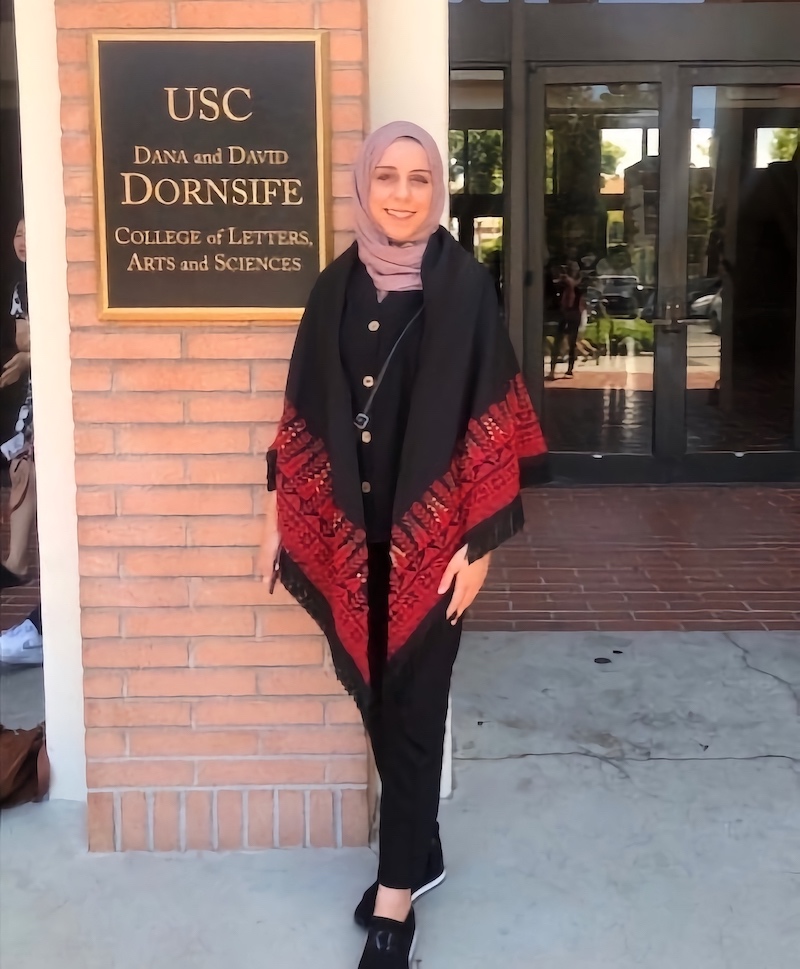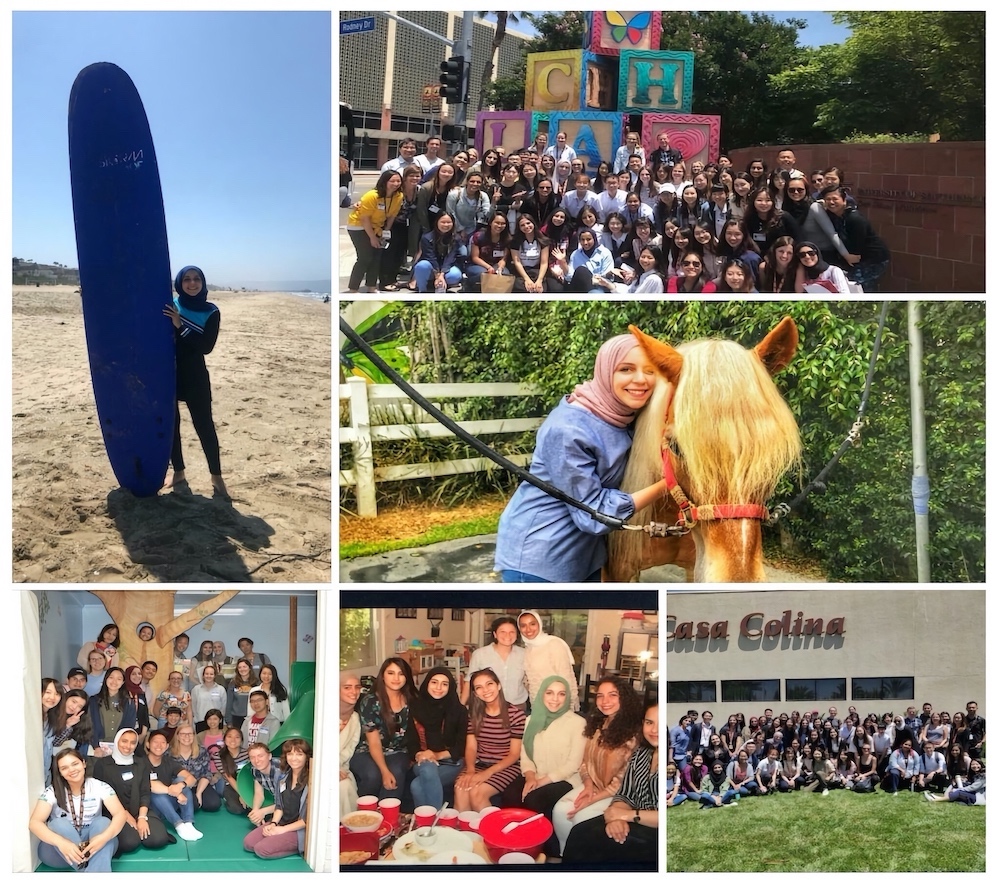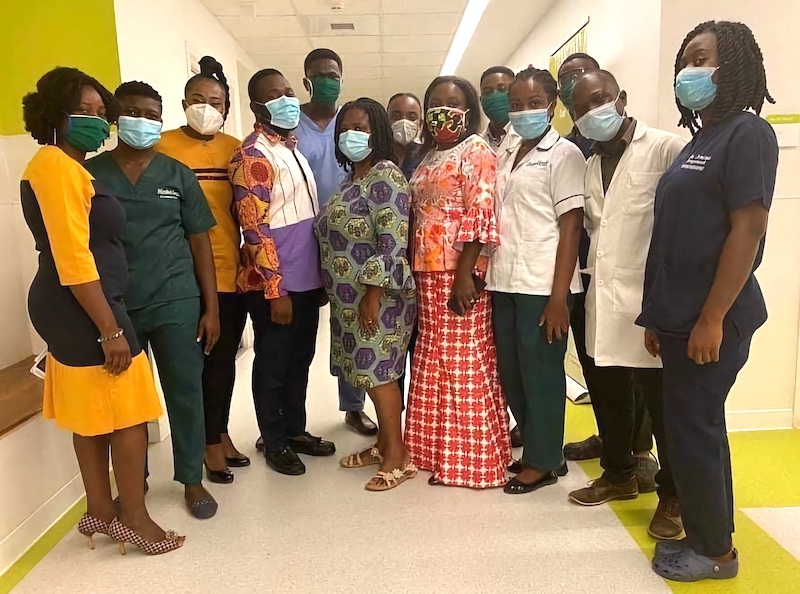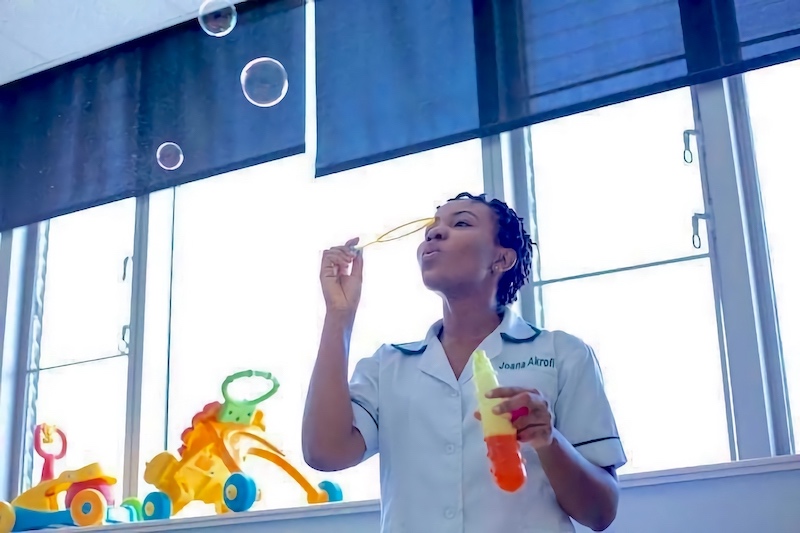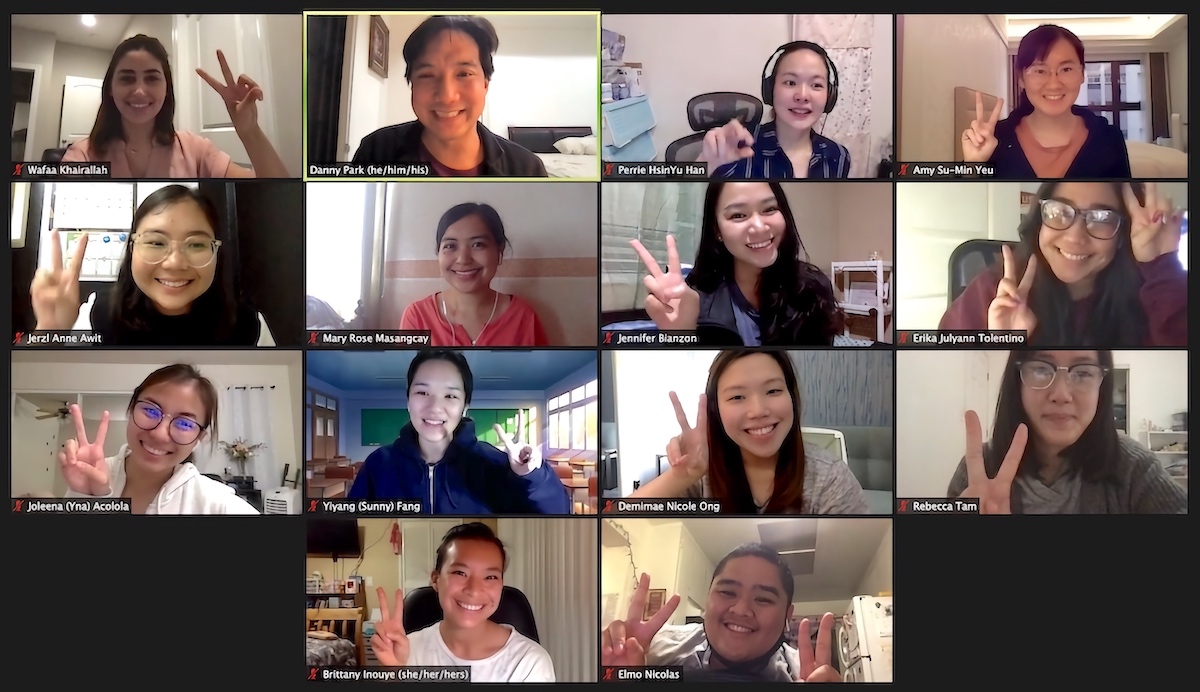Student Blog
International
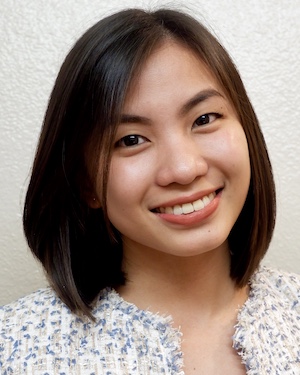
A Day in the Life (Hybrid edition) ⟩
April 28, 2021, by Yna
Classes International Living in LA Videos
“What’s a typical day of a master’s student look like?” “How are your classes being held?”— these two must be some of the top questions that I get asked by students. That is why I decided to make a vlog called A Day in the Life—Hybrid edition, because we are currently employing a combination of in-person and virtual formats for some of our courses. Safety measures are observed to ensure safe delivery of in-person instruction, such as weekly COVID-19 tests, completing the Trojan Check before coming to campus, physically distanced classroom seating arrangement (one student per table), and wearing of face shields whenever we needed to get closer than 6 feet with each other. In this video, you will see me go to campus for our in-person class for OT500: Clinical Problems in OT, Special Topics and Emerging Practices, wherein we learned from Jane Baumgarten OTR/L proper techniques when performing physical transfers and mobility on a variety of client populations. I also included steps on how to do the Trojan Check and how to make a reservation to use the library. Watch the video here:
⋯
My Summer Occupational Therapy Immersion (SOTI) Program Experience ⟩
April 14, 2021, by Global Initiatives Team
International
By Samar Lahham, Occupational Therapist in Palestine
SOTI Alumni (2019)
My experience in USC’s Summer Occupational Therapy Immersion (SOTI) program for one month was indescribable and memorable, both personally and professionally. Participating in this program gave me the opportunity to learn from new experiences by attending lectures and site visits that are related to various areas of occupational therapy. In addition to the common occupational therapy intervention areas in Palestine, I have also experienced new interventions for wider population categories. For example, the role of occupational therapy working with people who have been through homelessness, human trafficking, and perinatal loss. These are new and important interventions I would take back to my country as a qualitative addition for the occupational therapy profession. For me, the most interesting experiences were learning about animal-assisted therapy through The Children’s Ranch Foundation, Ocean Therapy, and innovative practices that help children living with autism, cerebral palsy, visual impairments, and adults living with mental health conditions. This experience opened my eyes to new and interesting aspects within the field which I would complete my Master’s in.
The SOTI program also created opportunities for effective interactions between participants from all over the world, which enhanced sharing knowledge about occupational therapy theoretically and practically in other cultures.
Personally, the SOTI program provided me the chance to face new challenges and experiences for the first time in my life that made me more confident and stronger. It’s the first time I’ve traveled alone for 22 hours, my first experience in surfing and closely interacting with animals as I hugged a horse and carried a chicken or rabbit, and it was also interesting to try new foods from different cultures and visit amazing places in LA. This experience made me more responsible and independent in managing my daily affairs and needs, taking care of myself, enhancing my financial and time management skills, and also improving my leadership and communication skills by being a group facilitator for many presentations. Moreover, my English skills have improved significantly through the program, making new friends and interacting effectively with the American society.
I really would like to recommend SOTI to other occupational therapy students as it is a great chance to improve their skills professionally and personally.
Samar at SOTI. [top left: Ocean Therapy (Redondo Beach), top right: Children’s Hospital Los Angeles, Center right: The Children’s Ranch Foundation, bottom left: Pediatric Therapy Network, bottom center: Visiting with Dr. Samia Rafeedie, bottom right: Casa Colina Centers Hospital and Centers for Healthcare]
⋯
Transforming Western Perspectives — Continued ⟩
April 2, 2021, by Global Initiatives Team
Diversity International
Joana Nana Serwaa Akrofi, OT
Post-Professional Master’s student, University of Ghana Graduate, Newsletter Editor for the Occupational Therapy Africa Regional Group
By Michelle Plevack
Entry-Level Professional Master’s student
In collaboration with Brittany Inouye
Entry-Level Professional Master’s student, Global Initiatives Student Worker
In February 2021, Global Initiatives had the pleasure of hosting a Global Brown Bag Seminar featuring a variety of international occupational therapy perspectives (Transforming Western Perspectives: Lessons Learned from International OT). We are excited to highlight one of the panelists, our very own Joana Nana Serwaa Akrofi, OT, and her work as an occupational therapist in Ghana.
While Joana is currently residing in Los Angeles for the Chan Division’s Post-Professional Master’s (MA-1) program, she was born in Ghana and has worked there as an OT across a variety of settings. Before becoming an OT, Joana was an advocate for feminism and spirituality, and expresses that she has always felt she was “born to be an activist.” This mindset has translated into a sense of advocacy for occupational therapy in Ghana, where individuals with disabilities are frequently stigmatized. Following schooling, Ghanaians who complete a higher education are required to work in their field for one year in an unpaid government position. With a strong interest in pediatrics and in particular, children with autism, she spent this unpaid year working at a community-based institution where she educated teachers and students about the developmental needs of students with disabilities. This kickstarted her interest in Sensory Integration strategies for this population. While there is presently no Sensory Integration certification in Ghana, Joana hopes to pioneer SI practice using the available resources in her home country.
Although Joana’s academic journey with USC has taken place amidst a global pandemic, her positive outlook highlights the collaborative, inclusive, and diverse nature of the Chan community. She describes how communities such as Global Initiatives “helped us celebrate our roots and makes me proud to be Ghanaian.” She has felt enlightened by her experience at USC in that she had previously believed Westerners to have a negative, single narrative about the people of Ghana. Having now interacted and worked with not only Americans, but a wealth of diverse individuals in the MA-I cohort, Joana has become reassured by the solidarity within her classrooms and the Division as a whole. She described feeling inspired by both her professors and classmates’ experiences, which I in turn relate to, feeling inspired by Joana’s confidence and resolve.
Joana’s voice holds great fortitude and passion while envisioning her hopes for occupational therapy in Africa. She describes the profession as going through a phase, and dreams of establishing occupational therapy in Ghana in a way that is relevant to Ghanaians. In contrast to the United States, in Ghana, interdependence within the local community is valued and ‘needing help’ is less taboo. It is not strange for extended families and friends to want to help nurture each other during times of need. She hopes to integrate these values into her practice as an OT. While Western viewpoints focus on independence in activities of daily living (ADLs), decolonizing that perspective would mean realizing that group facilitation of these same ADLs can actually bring community members together in a healing way.
If she could give one word of advice for anyone interested in working in Africa or abroad in general, it is to “go in trying to learn rather than trying to teach,” which is ironic in that while Joana is here at USC to learn, she has subsequently taught us so much.
Bubble activity used to engage children with Autism Spectrum Disorder (ASD) before beginning sessions
⋯

What Made You Decide To Study Abroad? ⟩
March 19, 2021, by Yna
Diversity International
Years ago, when I was still trying to decide whether to stay in my home country or go abroad to pursue a Master’s degree, I employed the usual technique of listing down the pros and cons of each option that I had. It did help a little bit, but what ultimately led me to arrive at a decision was after I asked myself: “What is my goal? What do I want to get out of this?” That’s when I realized that what I was really looking for was something more—an experience that will further strengthen my knowledge and expertise in my chosen field. This is not to say that my education in the Philippines was lacking in any way; I had so much to learn from my university’s rigorous undergraduate program and all its brilliant professors which provided me with the necessary foundations and honed me to be the person that I am. But it is also for this very reason that I found myself with a desire to learn more about how I can apply this knowledge into practice in a manner that will really produce a significant impact to my clients’ lives and even to the larger community.
I was a newly licensed occupational therapist then, barely even worked a year, when I was presented with the opportunity to go to the US. I welcomed the news with both excitement and apprehension, as I was already starting out my career and had all my future plans set out—or so I thought. Making a decision definitely wasn’t an easy feat, with the thought of being separated from my loved ones holding me back the most. Nevertheless, all of my family members and friends were (and still are) very supportive of whatever decision I make—something that I truly appreciate and am very thankful for to this date. As you can tell, I ended up deciding to leave behind the comfortable life that I had for something that’s entirely out of my comfort zone—studying abroad. After performing extensive research about USC Chan and its Post-Professional Master’s program, reading student blogs, consulting various people, I determined that pursuing this road would bring me towards my goal of gaining life experiences that are worthwhile and would add value to my future practice. I felt terrified but at the same time thrilled by the many opportunities that I had imagined this decision would open up for me.
True enough, throughout the time that I have been in the program, I have found myself being the recipient of unique opportunities that I never would have earned in any other place: studying in the #1 ranked OT program in the US, learning from exceptional professors who worked closely with the very people who pioneered OT practice areas such as Sensory Integration and Lifestyle Redesign®, witnessing various breakthroughs in research by many renowned faculty, being part of a supportive community who puts great value in rich perspectives that its diverse students bring to the table, and working as a student ambassador which allowed me to further expand my professional network and enhance a lot of my skills. I put great value in these experiences which is why I feel very satisfied with the choice that I had made back then.
To anyone who is trying to come to a decision on whether to study abroad or not, I unfortunately do not have the answer, but I do have a question for you: What is your goal? I invite you to ask yourself that question that only you could answer, by finding out what you think is worthwhile and in line with what you want to achieve in life.
⋯
How USC helped me get through this pandemic, virtually ⟩
March 14, 2021, by Global Initiatives Team
Admissions International
By Wafaa Khairallah
Post-Professional Master’s student
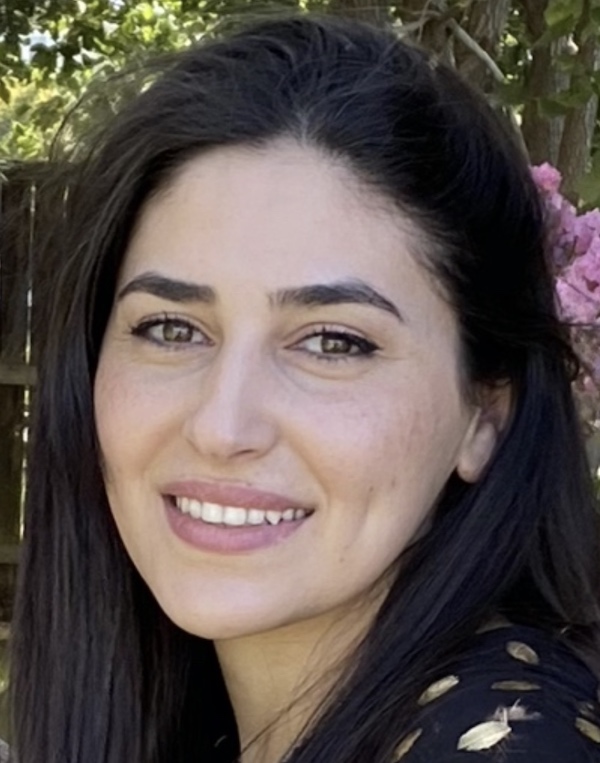
Wafaa Khairallah
Thinking back to 2020 and how it started, I never thought my educational and professional goals would work out the way I wanted, but after all it happily did!! I gladly think that being enrolled at USC as a Post-Professional Master’s (MA1) student has helped me get through those difficult times — not only by keeping me busy, but rather by socially connecting me on a high intellectual level with people with shared interests and ambitions. From a very personal experience, these are some aspects of how I felt USC has helped me to get through the pandemic.
Feeling of inclusion
I imagined that I wouldn’t be able to attend any school in the U.S. as an immigrant who wants to study here while my Green Card application was still pending. Certain universities were even unable to proceed with my admission process because of their policies and limited understanding of how to proceed with my circumstance. It was a little hard for me to navigate this, but fortunately USC was able to go through this process in a much clearer way. This definitely proves USC’s compliance in embracing inclusion for all and with little time to wait, greatly impacted my pursuit through my professional journey.
Networking
As an MA-1 student at USC and a part of the USC Chan Global Initiatives team, I have been impressed by the amount of effort the Division puts into developing collaborative, international partnerships. Specifically, I was very pleased to know that USC has partnered with my home school, Bethlehem University (Palestine), through the Summer Occupational Therapy Immersion program. Being able to connect with global occupational therapists has not only improved my knowledge in many areas related to OT, but has pushed me to also reflect more on how such connections will foster multiple opportunities for many novice, passionate occupational therapists around the globe.
Making new friends
Frankly and as expected, it was not easy for me to move from one country to establish my life in another. I still need to develop new relationships and friendships. As we know, COVID did not make it any easier with all the lockdowns and safety regulations. However, this opportunity was definitely delivered by USC. Now, I am able to say that I have new colleagues and future friends in the program. Although our communication is virtual, we are still able to connect on a personal level; hoping to meet in person in the near future!
⋯






